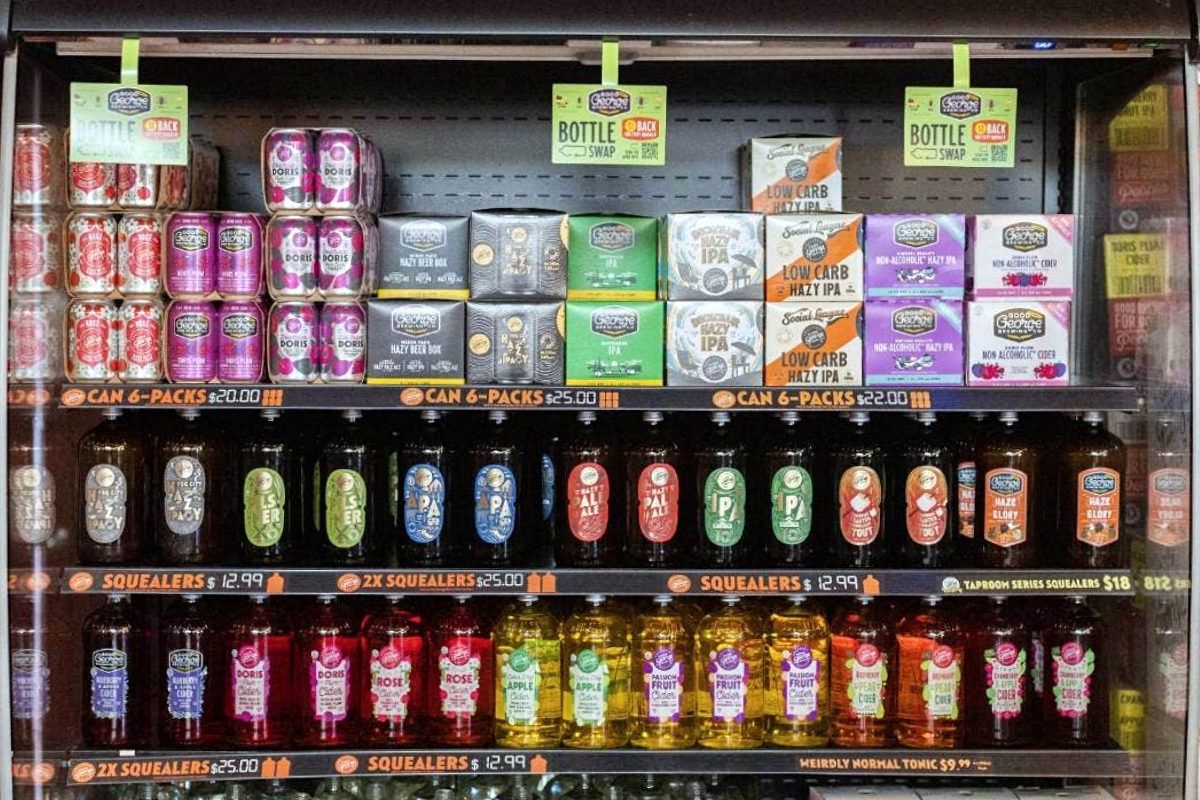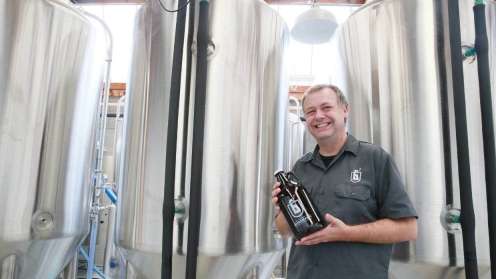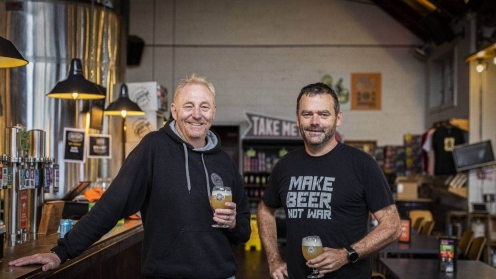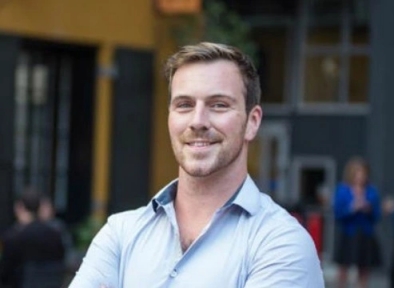
There are a lot of factors these days playing a role in what is making the industry scramble to keep up. One of the current issues is the shortage of carbon dioxide which in turn, is increasing prices.
There is one craft brewery in Hamilton, New Zealand that, for the first time in four years, had to raise their prices.
“The running joke with beer is that it’s recession proof and that people will kind of keep drinking it no matter what,” said Brewaucracy mashmaster general Greig McGill.

The running joke may be that beer is recession proof, but Brewaucracy brewer Grieg McGill has noticed many people are coming to his taphouse less frequently (Photo courtesy of Mark Taylor/Stuff)
While beer prices at his taproom have gone up by an average of 10% to 15% this year, the basic costs have gone up by 40 to 50%, he said, according to the article and interview in Stuff.
“However, we have noticed a lot more people coming in less frequently.
“But at the same time, we are also seeing new faces.”
McGill had noticed regular craft beer drinkers either drinking less, drinking at home or in some cases brewing their own.
“We believe if you are drinking the beer where it is made, there’s a reasonable expectation that it should be cheaper. But the realities of the cost of making it have just got to the point where we cannot sustain that.”

Good George venues are getting busier despite a $1 to $1.50 increase in the price of beer, says co-founder Darrel Hadley, right. He’s pictured with fellow co-founder Brian Watson. (Photo courtesy of Christel Yardley/Stuff)
Good George venues are getting busier despite a $1 to $1.50 increase in the price of beer, said co-founder Darrel Hadley. The brewery supplies 70 bars and restaurants across the country, and Hadley said they were seeing some optimism coming back more in some areas than others.
”The more you move over $20 for a six-pack, you are sacrificing sales volume for that profit margin.
“Craft beer is a brutal game, unless you are growing, are in consumers’ faces and have got new products, you will start to lose relevance quite quickly.”
Brewers are now starting importing the gas from Malaysia or sourcing it from the country’s only commercial supplier of liquid carbon dioxide, Todd Energy’s Kapuni gas field in Taranaki.
The war in Ukraine has created a global shortage of wheat. Hence, brewers are convincing New Zealand farmers to not plant wheat, but plant barley and hops for beer, paying 30% premium.
Harvesting season is coming up in March-April next year and Hadley says they’ve been told the price of malt is jumping 32% in January.
The alcohol excise tax, which depends on inflation every year, has seen the highest increase of 6.9% in the last 30 years.
Consultation on the scheme ended in May and a Cabinet decision is expected later this year. If approved, it could be operating by 2025 at the earliest.

Dylan Firth, director of the Brewers Association, is asking government to provide tax relief on thousands of kegs of stale beer that will have to be dumped after lockdown.
Dylan Firth, director of the Brewers Association of New Zealand, is asking the government to provide tax relief on thousands of kegs of stale beer that will have to be dumped after lockdown.
Brewers Guild executive director Melanie Kees said the brewers welcomed the scheme but a 20c deposit on each container was too much.
